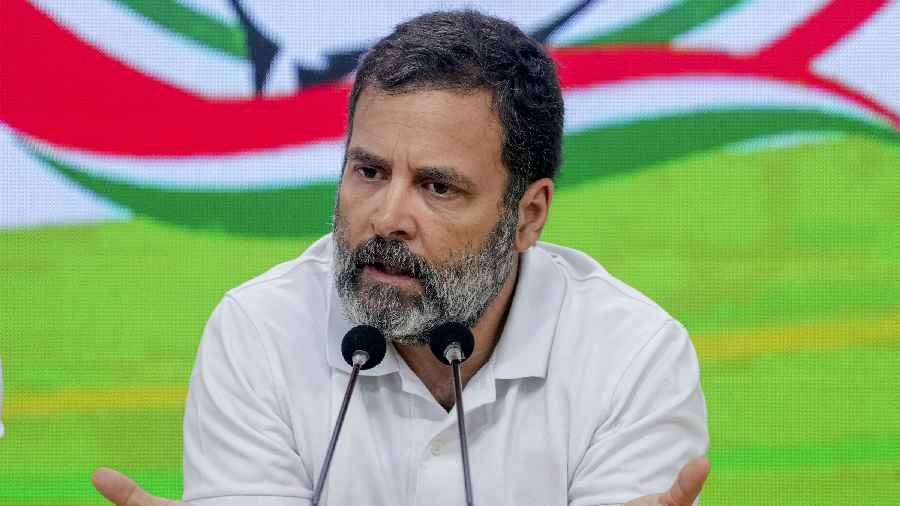A Patna court’s recent summons to Congress leader Rahul Gandhi to record his statement in a defamation case filed by BJP leader Sushil Kumar Modi may face judicial challenge on the doctrine of “double jeopardy,” which prohibits prosecution of a person twice for the same offence.
Having been already convicted and sentenced to two years’ imprisonment by a Surat court on March 23, Rahul can now challenge the latest summons issued by the Patna Court to appear before it on April 12 as being violative of Article 20(2) of the Constitution and Section 300 CrPC, both of which expressly bar prosecution of a person for the same offence irrespective of whether he has been convicted or acquitted.
The Congress leader was sentenced to two years imprisonment over his comments on the “Modi surname” during an election rally in Karnataka’s Kolar district in 2019. He had remarked upon the common surname of Nirav Modi and Lalit Modi, who are both wanted for fraud.
BJP legislator and former minister Purnesh Modi had filed a defamation case accusing the Congress leader of insulting the entire “Modi” community, which was upheld by the trial court last month.
However, around the same time in 2019, Sushil Kumar Modi too on the same set of allegations and the very same speech at Kolar filed another defamation case against the Congress leader for which he has now been asked to appear before the Patna court on April 12.
But having been already convicted by the Surat court in the same case, Rahul can seek recourse to Article 20(2) of the Constitution and Section 300 CrPC citing the doctrine of double jeopardy.
Under Article 20(2) of the Constitution of India, no person shall be prosecuted and punished for the same offence more than once. Section 300 CrPC. lays down that a person once convicted or acquitted, cannot be tried for the same offence.
In order to bar the trial of any person already tried, it must be shown (i) that he has been tried by a competent court for the same offenceor one for which he mighthave been charged or convicted at that trial, on the same facts; (ii) that he has been convicted or acquitted at thetrial; and (iii) that such conviction or acquittal is in force. Where the accused has not been tried at all and convicted or acquitted, the principles of “double jeopardy” cannot be invoked.
The said provisions have been upheld by the Supreme Court in a catena of judgments including by a five-judge Constitution bench on April 17, 1953, in the “Maqbool Hussain vs The State of Bombay…”
The Constitution bench had unanimously ruled that “The fundamental right which is guaranteed in article 20(2) enunciates the principle of ‘autrefois convict’ or ‘double jeopardy’. The roots of that principle are to be found in the well-established rule of the common law of England ‘that where a person has been convicted of an offence by a court of competent jurisdiction the conviction is a bar to all further criminal proceedings for the same offence.”
Rahul can cite this before the trial court in Patna to show that the present proceedings ought to be quashed.










